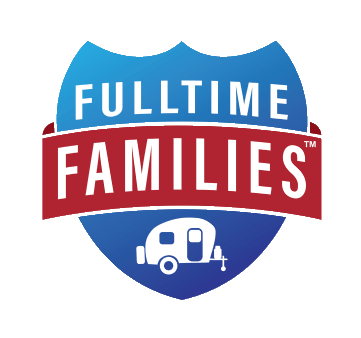Have you ever thought about picking up your life, unplugging from all electronics, packing up your family, and going out to see the country? If so, you are a part of a large group of individuals who have recently joined the trend of becoming full-time RVers.
Many people decide to take this on as a way to reconnect with themselves, their families, and other community members while seeing the best parts of America. This is also a great way to experience community events and teach your children about different cultures and ways of life. Before making the decision to become a full-time RVer, some considerations should be made to ensure the safety and security of your family and your RV.
Health Coverage
One of the most essential insurances to consider for yourself and your family is health insurance. You, as the insured, pay a certain amount of money each month to have health insurance benefits. Health insurance coverage typically pays for part or all of the surgical, prescription, and basic medical costs. Once the insurance is used, the company will either reimburse you for any upfront costs that were paid or will pay the medical provider directly. This will result in the provider sending you either a zero-balance bill or a bill for the remainder of the cost.
While many employers offer health insurance coverage, you might lose this coverage when changing jobs in order to become a full-time RVer. This is where options to enroll in lower cost healthcare coverage through the Healthcare Marketplace come into play. Depending on your income level, this coverage can be deeply discounted with the use of tax credits.
While looking at available coverage, something to consider is the plan and network type. Some plans allow you to use almost any doctor or health care facility, while others limit your choices or charge you more if you use providers outside their network. Without this type of coverage, you may be facing exorbitant costs if any medical issues arise while traveling, which could leave you and your family in a financial bind.
Life Insurance
Another practical type of insurance coverage to consider before becoming a full-time RVer is life insurance. In the event of your death, a life insurance policy pays a lump sum of money (tax-free) to whomever you deem the beneficiary.
When choosing a life insurance policy, there are a few options available; the two most common being term life insurance and whole life insurance.
A term life insurance policy is exactly what it sounds like; the policy itself will terminate after a predetermined length of time. This is a less expensive option, but that is because it does not provide protection endlessly. This type of policy assumes that your major financial obligations are paid and there is money in your savings to cover any future expenses after your death. This essentially will provide your family with financial protection when they need it the most.
Whole life insurance is considered a more constant type of protection. This type of policy is in effect until the date of your passing, making it more costly than term life insurance. Electing this type of coverage at a younger, healthy age can give you perhaps cheaper premiums than electing at an older age. However, age is not the only factor. Other factors such as gender, hobbies, and general policy details determine premium amounts.
No matter what type of policy you choose, having life insurance coverage helps to ensure the financial security of your family after your passing.
Auto Insurance
As a full-time RVer, you might consider towing a car when you travel to make trips to the grocery store and other destinations more convenient, or maybe you’ll be towing a trailer with a truck. Either way, before embarking on your trip, put thought into your vehicle insurance. While it is a legal necessity to have liability insurance, other optional insurances include:
- Comprehensive car insurance coverage: Provides protection against theft and damage caused by an incident other than a collision, such as fire, flood, vandalism, hail, falling rocks or trees, or hitting a deer.
- Collision car insurance: Reimburses you for damage to your car that occurs as a result of a collision with another vehicle or other object (such as a tree or guardrail) when you are at fault. It also covers damage from potholes or from rolling your car.
Similar to previous insurances discussed above, there are several options available at varied costs. One consideration for full-time RVers is to increase the deductible (if within your budget) to reduce the collision and comprehensive coverage premiums by 15 to 30 percent and switching to a $1000 deductible can possibly save you 40 percent or more. This can help in the long run if your car isn’t frequently used, by providing the upfront coverage at a cheaper rate.
RV Insurance Coverage
The final consideration to think about before becoming a full-time RVer is RV insurance. While RV insurance is similar to standard auto insurance, it is a separate policy that will need to be held. Many RV policies provide the same benefits as auto policies but provide a deeper level of protection due to the nature of the risks that RVs present. You can typically customize your coverage by adding:
- Collision damage, which helps pay for your repair costs if your RV gets damaged in an accident.
- Bodily injury, which helps pay medical expenses if other people become hurt due to an accident.
- Property damage, which can help pay for repairs of another person’s property if damaged by your RV.
Keep in mind that your RV is like a home; you want to keep it safe! While paying a potentially high premium upfront may be a hassle, remember that replacing your RV at full cost is also quite expensive.
While making the transition to a full-time RVer is an exciting time, it’s important to prioritize your insurance coverage first before hitting the road. By doing this, you are ensuring that your travels are safe and fun for all without the potential of financial pitfalls.
About the Author
The Policygenius team is inspired daily by their simple mission:
“To help people get the financial protection they need, and feel good about it.”
By combining cutting edge tech with expert advice, Policygenius takes the hassle out of comparing and buying insurance. They’ll find you the best price, answer all your questions, and get you covered, because they don’t work for the insurance company – they work for you.

